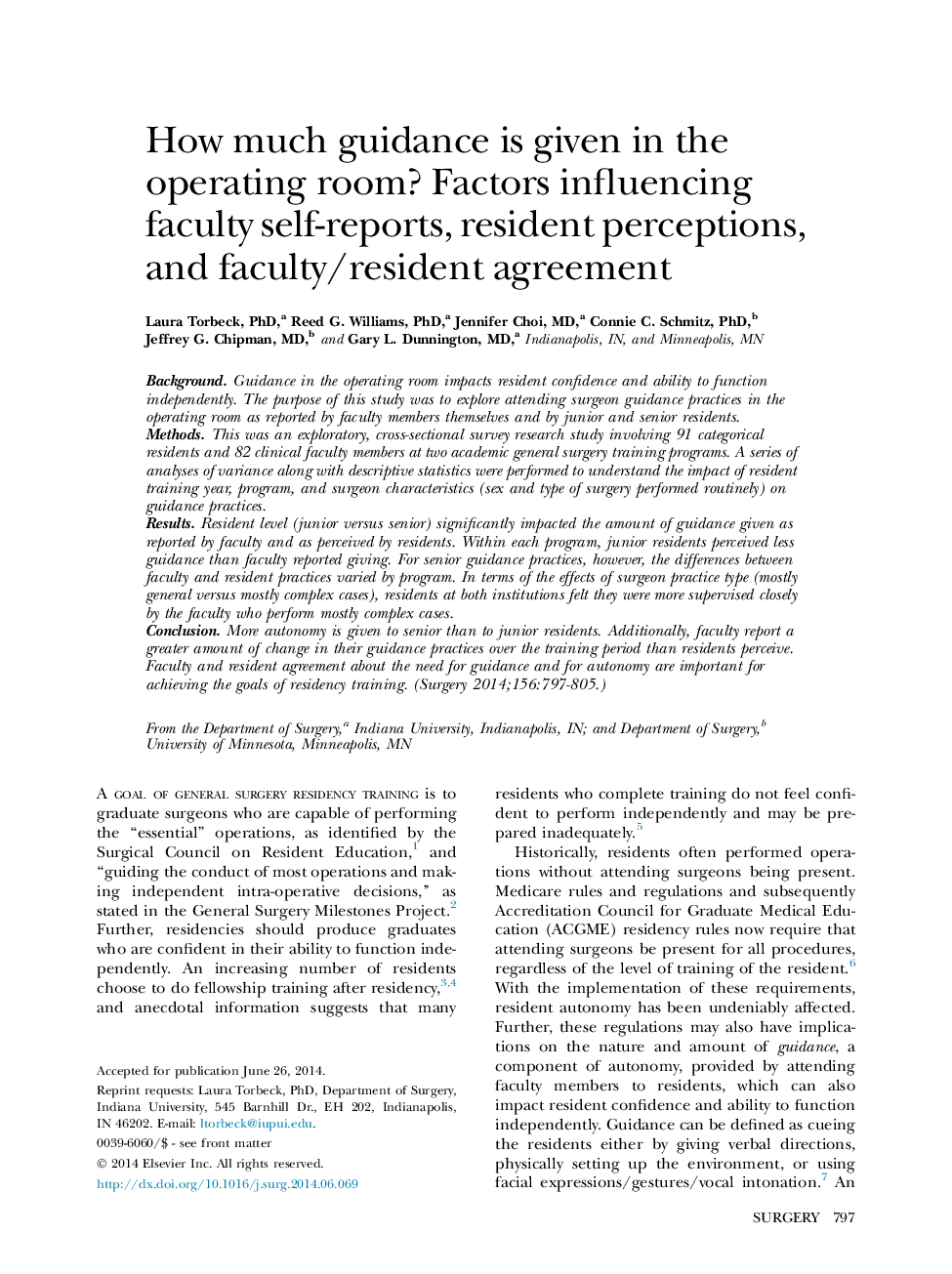| Article ID | Journal | Published Year | Pages | File Type |
|---|---|---|---|---|
| 4307617 | Surgery | 2014 | 9 Pages |
BackgroundGuidance in the operating room impacts resident confidence and ability to function independently. The purpose of this study was to explore attending surgeon guidance practices in the operating room as reported by faculty members themselves and by junior and senior residents.MethodsThis was an exploratory, cross-sectional survey research study involving 91 categorical residents and 82 clinical faculty members at two academic general surgery training programs. A series of analyses of variance along with descriptive statistics were performed to understand the impact of resident training year, program, and surgeon characteristics (sex and type of surgery performed routinely) on guidance practices.ResultsResident level (junior versus senior) significantly impacted the amount of guidance given as reported by faculty and as perceived by residents. Within each program, junior residents perceived less guidance than faculty reported giving. For senior guidance practices, however, the differences between faculty and resident practices varied by program. In terms of the effects of surgeon practice type (mostly general versus mostly complex cases), residents at both institutions felt they were more supervised closely by the faculty who perform mostly complex cases.ConclusionMore autonomy is given to senior than to junior residents. Additionally, faculty report a greater amount of change in their guidance practices over the training period than residents perceive. Faculty and resident agreement about the need for guidance and for autonomy are important for achieving the goals of residency training.
